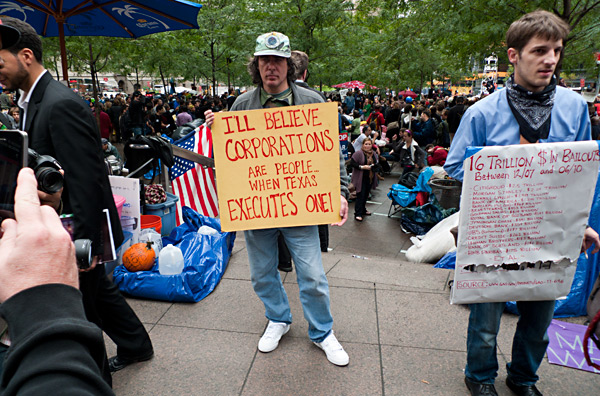
Pity poor Shaun McCutcheon.
McCutcheon is the Alabama businessman suing the Federal Election Commission for abridging his First Amendment right to free speech— that is, if we define free speech as McCutcheon’s right to donate upward of $123,200 in a single election cycle. He claims eliminating federal limits on an individual’s aggregate campaign contributions is “about practicing democracy and being free.” To underscore his love of freedom, McCutcheon wrote checks to 15 Republican candidates in the symbolic sum of $1,776 .
Katrina Vanden Heuvel
Editor and publisher of the Nation magazine, vanden Heuvel writes a weekly column for The Post.
The Supreme Court is expected to hand down its decision in McCutcheon v. Federal Election Commission any day now. Given the Roberts court’s track record, the biggestcampaign-finance decision since Citizens United v. Federal Election Commission is likely to blow another gigantic hole in the fabric of our democracy.
Such a ruling will fuel popular outrage and increase pressure for fundamental reforms such as disclosure and public financing. Already, Senator Tom Udall (D-N.M.) and Rep. Jim McGovern (D-Mass.) have introduced a constitutional amendment allowing campaign spending limits. This would finally supercede the Supreme Court’s infamous 1976 ruling in Buckley v. Valeo, which equated money with speech and effectively turned our elections into auctions.
At the state level, New York has a golden opportunity to counter the tsunami of unlimited, unaccountable spending and reengage citizens in the political process. Modeled on the New York City reforms that helped elect Bill de Blasio Mayor, Gov. Andrew Cuomo’s proposed public financing system would offer New York legislative and executive candidates $6 in matching public funds for every $1 raised, up to $175 per donor. It allows, say, a schoolteacher with a friend running for State Assembly to contribute $175 — not chump change, but feasible if you strongly support a candidate — and watch that donation grow into $1,050. Other measures would also lower New York’s sky-high contribution caps andrequire contributions of more than $500 to be disclosed electronically within 48 hours. To enforce these laws, Cuomo would empower a well-funded, well-staffed election law officer. All this is critical, Cuomo said in his 2014 State of the State address, “Because when government has the public trust, government has the capacity to do good work.”
When average Americans see plutocrats purchasing politicians right and left (mostly right), both trust and good work in government are hard to find. And as of January, outside group spending for the 2014 midterms is already three times higher than it was at this point in 2010 — and 25 times greater than at this point in 2006. While the conservative justices insist that none of this gives rise to “corruption or the appearance of corruption,” witness the furor over the quixotic attempt by House Ways and Means Committee Chairman Dave Camp (R-Mich.) to close tax loopholes favored by the wealthy. With Wall Street donors warning Republicans that high-dollar fundraisers are “cancelled for the foreseeable future,”Camp’s (unfair but surprisingly not unhinged) proposal is going nowhere fast in the GOP-controlled House.
Crucially, fairer elections would level the playing field not just between the rich and the rest, but between men and women candidates. Women currently make up roughly 20 percent of both Congress and the New York legislature — putting the United States on par with Senegal and New York with Texas — not because women don’t win at the same rates, but because they don’t run at the same rates. And a major reason for that hesitation is that women doubt they can raise enough money. All five states that have public financing rank in the top 12 for the proportion of women legislators, with two in the top five. New York’s City’s public financing system just helped women of color become the City Council speaker and public advocate.
The stage is set for New York to ignite a nationwide movement rolling back some of the catastrophic consequences of Citizens United and (likely) McCutcheon. But while Cuomo has touted the fair elections proposal for four years and included it in this year’s budget, insiders suspect he’s willing to trade it away in negotiations with the Republicans. Supporters are canvassing the state to make sure Cuomo understands that this is a must-have item — and that, especially given his unwelcome economic conservatism, his standing with progressives is on the line.
Seventy-eight years ago, Franklin Delano Roosevelt stood in Madison Square Garden, in the state where he had been a strong, progressive governor, and declared, “We know now that Government by organized money is just as dangerous as Government by organized mob.” It was in New York that FDR took that courageous stand. Will Andrew Cuomo do the same?
Read more from Katrina vanden Heuvel’s archive


No comments:
Post a Comment